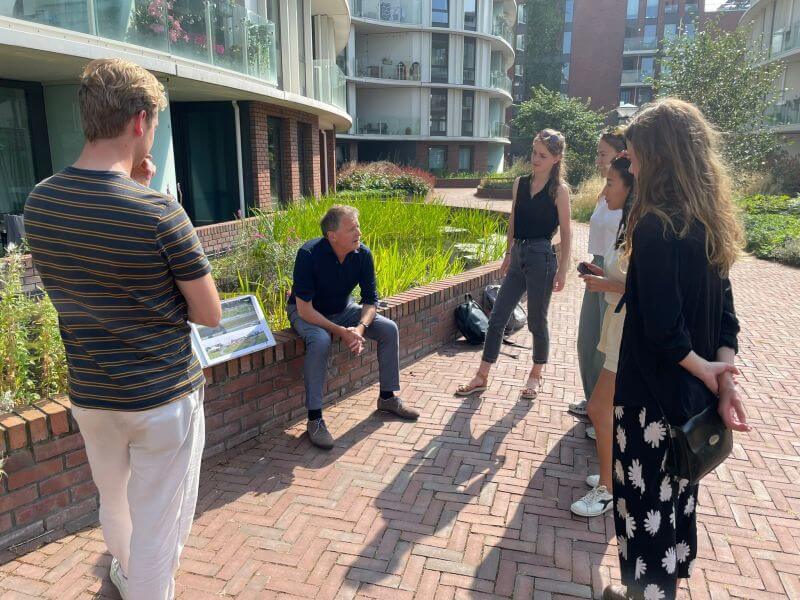Residents in Amsterdam’s Kolenkitbuurt are positive about the arrival of Rhapsody West. They believe that the building has improved the quality of the neighborhood.
That is one of the results of a master’s study conducted by students from Delft University of Technology and Wageningen University. The students did research on the quality of life and social health in the Kolenkitbuurt, with the case study being Rhapsody in West.
The Living Lab also showed that the community managers appointed in Rhapsody are indispensable. They organize many connecting neighborhood activities. A downside is that there is little social contact between the ‘old’ residents of the Kolenkitbuurt and the newcomers. The researchers attribute this mainly to the (municipal) choice for mid-range rent in Rhapsody. With a broader range, a housing career can arise in the neighborhood and in the building. The additional result is greater involvement in the neighborhood.
Dashboard Healthy Urban Living
The Living Lab study contributes to evidence-based design principles for a healthy urban life. What is a healthy city, can we measure and record this in data? The quality of life in neighborhoods affects people’s physical and social health. Measurable matters such as air pollution are easy to map, but social health is more difficult to measure. What is experienced as a problem for one person is of no significance to another. It is by definition subjective.
The study also encountered this problem during interviews with local residents. The students concluded that a national dashboard is therefore not realistic. Collecting data on social health in neighborhoods is time-consuming and expensive. The recommendation is to develop a template dashboard in which all relevant indicators and available data are included. Cities can then add their own (social health) data.
All recommendations can be read on the website Healthy Urban Living
The study Healty Urban Living – Living Lab – was commissioned by the Data and Knowledge Hub Healthy Urban Living, in collaboration with RIVM. Healty Urban Living is part of the master’s study Metropolitan Analysis, Design and Engineering (MSc Made). In addition to RIVM, Tangram Architekten and Urban Sync are involved in the study as case owners.

